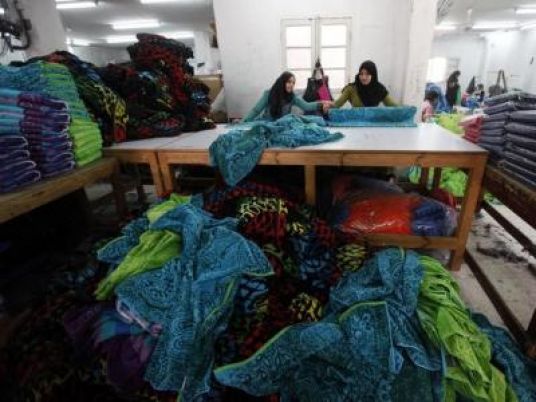Naga Hammadi is known for its aqueducts, through which flows the sacred water of the Nile, and for its aluminum complex, which used to be the largest of its kind in the Middle East.
Naga Hammadi was also famous for its library, also known as the "Gnostic Library." The library contained gospels and Gnostic writings that represented a historic and cultural wealth. During the Greco-Roman era, the city’s name meant "Rice Plantation."
But yesterday’s rice plantation has today become a den of wolves. The present-day Naga Hammadi is now notorious for sectarian strife, bloodshed, murder and the terrorizing of innocent civilians.
Even worse than that, the "heinous crime" of Naga Hammadi are now words we regurgitate when talking about any sectarian incident. But it would be better for us to work on addressing the root causes of sectarian violence, which no longer lies hidden beneath the surface but has reared its ugly head all across the country.
The recurrence of such events should alarm officials, but they prefer to ignore the warning signs. The lethargic, bureaucratic handling of such an important case has only served to heighten sectarian tensions. Last year alone saw two sectarian incidents occurring each month. Band-aid solutions and empty slogans have very obviously not resolved the problem.
Sectarian tension is still treated exclusively as a security issue. We need to learn to stop treating the symptoms and focus on curing the underlying disease.
A statement delivered by a group of intellectuals to the nation best sums up what I mean. The statement said that the shooting at Naga Hammdai should be condemned on political, moral and legal levels, and that a comprehensive investigation should be launched to uncover the details of the crime and bring its perpetrators to trial. The statement also called for the punishment of any official bodies whose negligence led to the killing.
Those subscribing to the statement held state institutions responsible for the recurrence of such events, and urged the state to form strategies to address the sectarian question at the political, educational, religious and cultural levels. They also called on civil society to assume responsibility for tackling the roots of sectarian violence. Sectarian violence, according to the intellectuals’ statement, is the outcome of several factors which have either been willfully neglected or hushed up.
Let’s face facts. Enough with denial–it’s time for a little bit of disillusionment. These events are not individual incidents.
There’s a problem not only in Egypt, but across the entire Arab world. Graphs showing the Arab Christian population illustrate how the atmosphere in the Arab world is repelling Christians, who are choosing emigration into the unknown over staying in a hostile environment.
Let’s consider the Christians of Iraq. Iraq’s Christian population stood at one million before the US invasion. Today, most of those Christians have left the country. Only Tareq Aziz remains in prison, along with a dozen thousand other Christian Iraqis who are already packing to leave their "hell of a homeland," which hasn’t even permitted them to celebrate Christmas–which unluckily coincided with Shia celebrations.
Christians used to account for almost one quarter of the population of Palestine, the cradle of Christianity. Christians, who are caught in the middle between Jewish Israel on the one hand and Islamic Hamas on the other, today represent just five percent of the population of Palestine.
Despite the lack of official statistics in Egypt, there are signs that the rate of emigration of Egypt’s Christians has increased over the past years. Egyptian society has lost touch with its heritage of tolerance and coexistence, once a main component of Egyptian national identity.
It doesn’t require much intelligence to realize a link between the emigration of Arab Christians on the one hand, and the increasing strength of fundamentalist Islamic waves in the Arab world and the fragility of Arab governments, on the other.
I think we still remember how Youssef el-Qaradawi, a highly influential scholar, declared celebration of Christmas as being haram, and inappropriate. If this is the opinion of a "moderate" scholar, then what should we expect from those with more extreme opinions?
It is all the more paradoxical to learn that those who reject the celebration of Christmas in the Arab world are the very same people who stood bitterly opposed to Switzerland’s minaret ban.
The first step towards solving the sectarian problem is to punish the criminals who usually get away with their racist crimes. The next step should be to adopt two pieces of legislation:
The first would be a unified law on places of worship, whereby all Egyptians stand on equal footing.
The second would be an anti-discrimination law prohibiting all forms of discrimination based on religion, color, gender and social status, according to which any public employees involved in discriminatory practices would be dismissed.
These two laws should help defuse the tension and propel us towards genuine national integration based on the values of citizenship and diversity.
We are in danger. But when a nation comes to a crossroads, middle-of-the-road solutions no longer work.
Translated from the Arabic Edition.




